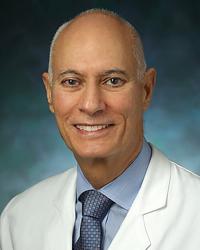Research Lab Results
-
Pablo Iglesias Lab
Investigators in the Pablo Iglesias Lab use analytic tools from control systems and dynamical systems to study cell biology, including biological signal transduction pathways. Our research interests include the ways cells interpret directional cues to guide their motion, regulatory mechanisms that control cell division, and the sensing and actuation that enable cells to maintain lipid homeostasis. -
Padmini Ranasighe Lab
Research in the Padmini Ranasinghe Lab focuses on internal and preventive medicine, with an emphasis on health and wellness and international health.
-
Pali Shah Lab
Research in the Pali Shah Lab focuses on lung transplants. Specifically, we’re interested in chronic rejection and quality and safety as they relate to lung transplants.
-
Patrick Breysse Lab
Research in the Patrick Breysse Lab seeks to better understand the biological, chemical and physical factors that can impact a patient’s health. Our team is currently studying the effects of indoor and outdoor air pollution on childhood asthma, respiratory tract infections, chronic obstructive pulmonary disease (COPD) and other respiratory conditions. We also conduct research on secondhand smoke exposure around the world and have participated in a range of health and exposure studies in Peru, Nepal, Mongolia, Columbia and India.
-
Paul Auwaerter Lab
Research in the Paul Auwaerter Lab focuses on tick-borne diseases, include Lyme disease. We’re also interested in point-of-care information technology. Recent research includes investigating the significance of positive test results for Lyme disease in low-prevalence regions and examining the geographic expansion of Lyme disease in the southeastern U.S. from 2000 to 2014.
-
Paul Ladenson Lab
The Paul Ladenson Lab studies the application of thyroid hormone analogues for treating cardiovascular disease; novel approaches to thyroid cancer diagnosis and management; and the health economic analyses related to thyroid patient care.
-
Paul M. Hassoun Lab
The Paul M. Hassoun Lab leads research on the source and treatment of pulmonary arterial hypertension in scleroderma.
-
Paul Rothman Lab
Research in the Paul Rothman Lab has focused on cytokines. We’ve investigated the role these molecules play in the normal development of blood cells as well as the abnormal blood-cell development that leads to leukemia. We’ve also studied the function of cytokines in immune system responses to asthma and allergies.
-
Paul Worley Lab
The Paul Worley Lab examines the molecular basis of learning and memory. In particular, we cloned a set of immediate early genes (IEGs) that are rapidly transcribed in neurons involved in information processing, and that are essential for long term memory. IEG proteins can directly modify synapses and provide insight into cellular mechanisms that support synapse-specific plasticity. -
Pediatric Cardiology Core Imaging Laboratory
The lab’s assets include three MRI systems available for pediatric studies, cardiac imaging processing, cardiovascular imaging and therapeutic ultrasound. A robust echocardiogram program conducts 10,000 transthoracic echocardiograms and 1,300 fetal echocardiograms per year, and maintains a database with 10 years of data.

